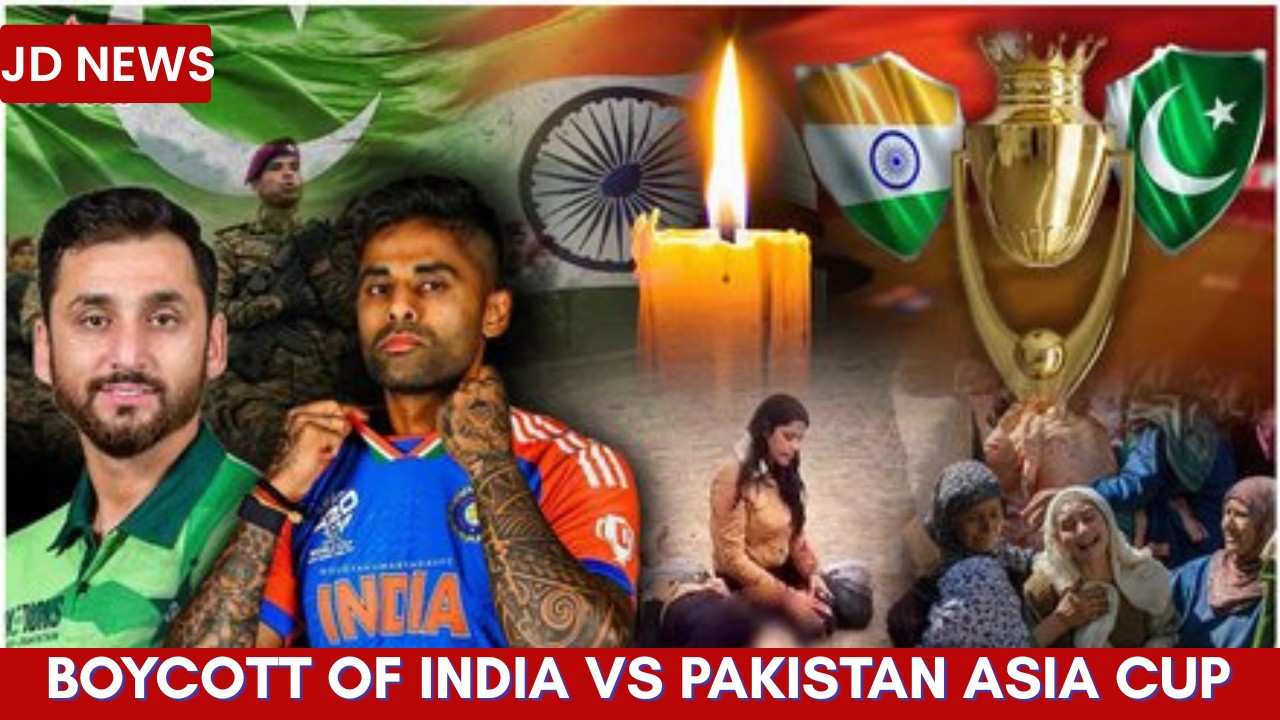Pahalgam Attack Widow Calls for Boycott of India vs Pakistan Asia Cup Clash; Opposition Hits Out at Centre

As the much-anticipated Asia Cup 2025 encounter between India and Pakistan approaches on Sunday, suggestions for a boycott are gaining traction. The requests come not just from political leaders, but also from people who have been directly touched by recent terrorist attacks. Aishanya Dwivedi, the young widow of a Pahalgam massacre victim, has made an impassioned request to all stakeholders, including the Board of Control for Cricket in India (BCCI), to withdraw from the match against Pakistan.
Widow’s Strong Stand Against Match With Pakistan
Aishanya spoke to media in Kanpur and opposed the decision to proceed with the high-profile game, calling Pakistan as a "terrorist nation" responsible for the deaths of innocent people. She contended that playing cricket in such circumstances insults the sacrifices of the 26 people slain in the April 22 Pahalgam terror attack. Her statements were emotionally charged as she questioned if cricket ties should continue while families are still mourning their loved ones.
In her remarks, she accused the BCCI of neglecting national sentiment and the plight of afflicted families. "The BCCI should not have agreed to a match between India and Pakistan. Except for one or two cricketers, no one came out to demand a boycott. Cricketers are known to be nationalists, so why remain silent now?" she queried. Aishanya also urged supporters to boycott the broadcast, claiming that not watching would be a powerful symbolic expression of solidarity.
Political Parties Join Chorus of Dissent
The dispute has rapidly turned political. Several Opposition leaders have echoed Aishanya's request, challenging the ruling BJP-led Centre and cricket officials for permitting the match. Shiv Sena (UBT) leader Aaditya Thackeray questioned whether "blood and cricket can flow together," emphasising the conflict between national security concerns and athletic activities.
Punjab Chief Minister Bhagwant Mann criticised the move, citing previous scandals in which Indian musicians were labelled as "traitors" for associating with Pakistan. Without naming Union Home Minister Amit Shah, Mann obliquely mentioned his son, Jay Shah, who is the head of the International Cricket Council (ICC), implying that political pressure may have influenced the decision to maintain cricket connections.
National Sentiment vs. Sporting Spirit
Uddhav Thackeray went even further, announcing "sindoor protests" in Maharashtra. He described the match as a "insult to national feelings," emphasising that while soldiers continue to give their lives on the border, cricket with Pakistan sends the wrong message. According to him, now is an important time for India to convey a strong international message against terrorism by declining to play.
However, the BCCI has yet to publish a statement responding to the growing criticism. The debate emphasises the ongoing struggle between sports diplomacy and national security, particularly in the context of cross-border tensions and terrorist threats.
What Lies Ahead
The boycott calls cast the event under a shadow of controversy, despite the fact that the match is still scheduled. The greater question remains: can cricket genuinely be removed from politics, especially when emotions are so closely linked to national security and the memories of terror victims? As the country listens in, the game becomes more than simply cricket; it reflects India's position in balancing diplomacy, sports, and the voice of its people.
Disclaimer: The information provided in this blog is for general guidance only and is not intended to serve as political or legal advice. While the views and statements quoted here are attributed to public figures and affected individuals, readers are encouraged to follow official updates from government and sports authorities for the latest developments.